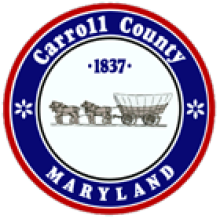New Network in Carroll County Maryland on Track for 2013 Completion
Two years ago, we reported on the emerging partnership between Carroll County, Maryland, and the Maryland Broadband Cooperative (MBC) to build a fiber network to local business clients. The County financed the investment in part through cost savings obtained as a result of transitioning away from expensive T1 lines.
This summer, the Carroll County Office of Technology Services reported that the network is on track to be completed by January, 2013. In an interview with the Carroll County Times, Mark Ripper noted that the network is 60% complete. When deployed, the Carroll County Public Network (CCPN) will be 110 miles long and connect 132 sites, including the county public schools, the public library, and Carroll County Community College.
Carroll is one of a group of Maryland counties that comprise the Inter-County Broadband Network, a group of local government entities partnering to connect the smaller municipal networks across Maryland like the CCPN.
Back in 2007, when the CCPN was in its infancy, a Baltimore Sun article discussed significant cost savings estimated for the local library:
Currently, Ripper said the county pays $3,300 a month to connect all the local library branches to the Internet. Those costs will be eliminated once the network is built out.
Savings to the schools, the libraries, the college, and county government are expected to be significant. Short term annual savings for all four entities are estimated at $950,000 per year in leased line costs, according to a 2010 Carroll County Credit Rating Report. The report goes on to estimate potential revenue from the network at $300,000 to $600,000 in the short term and as high as $3,600,000 to $7,200,000 in the long term, depending on how the network is used in the future. The credit report PDF is available here.


